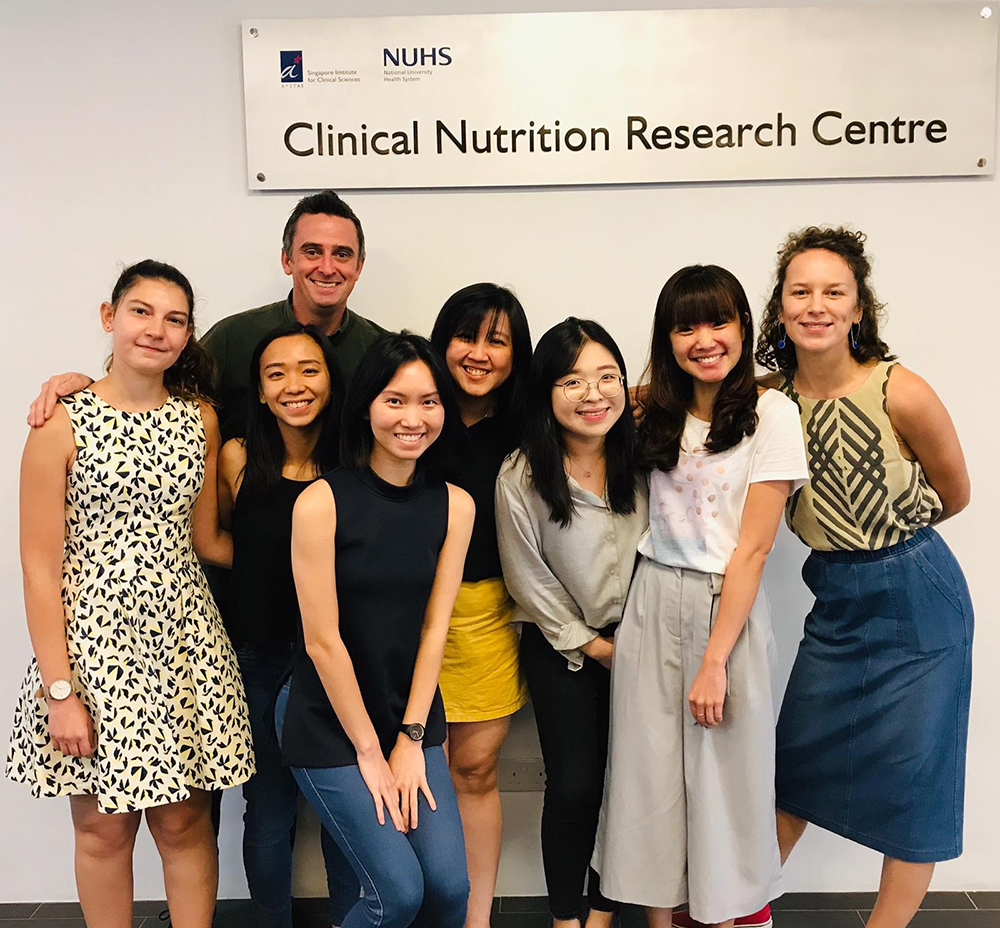FACES OF A*STAR
Psychology of Food: Does Eating Healthy lead to Living Happy?

Eating your greens and keeping your sugar intake in check are part of keeping a balanced diet. But an obsession to eat the right foods may take a mental toll, leading to issues like negative body image and irregular eating patterns.
This is why Dr Keri McCrickerd is looking to reshape the traditional boundaries of food. “People have a complex relationship with food, and we can be physically healthy but still struggle to regulate food intake, which is often overlooked in nutrition,” said the senior research fellow at the Singapore Institute for Clinical Sciences (SICS).
It is one of the gaps the 33-year-old is addressing, as she explores different approaches to help people eat in a way that supports both physical and mental health. To achieve this, we need a better understanding of how our appetite and eating behaviours develop.
The food environment is highly complex, with many factors influencing a person’s food choices and intake. For instance, food labels affect eating behaviour.
Dr McCrickerd and team found that Singapore’s Healthier Choice symbol actually led people to underestimate the calorie content of popular foods and drinks, and even affected their sense of taste. A “Healthier Choice” soymilk, for example, was perceived to be less caloric and less sweet tasting than the same soymilk drank without the label.

The Sensory and Ingestive Behaviour team
To establish proper eating behaviour, the key lies in translating research into accessible interventions that help establish healthy eating habits from a young age.
She now has an opportunity to do so, after being awarded an A*STAR career development grant. It will enable her to develop a series of books and games aimed at improving children’s understanding of their appetite.
“A really important aspect of our eating behaviour is the experience of appetite. We’ll use stories to get children to tap into their feelings of hunger and fullness, so hopefully that they grow up being able to regulate these sensations in a healthy way,” she explained.
Ultimately, the project aims to provide a set of educational tools that can be adapted by schools, clinicians and health professionals in Singapore.
Keeping it sustainable
Good eating behaviours can also play a vital role in global sustainability. The reception to plant-based meat substitutes, which are all the rage in the food industry today, is a case in point.
For such food to be truly sustainable in all aspects, people’s attitudes will play a huge role as well.
“If you believe that sustainable plant-based food is better for you, you might actually eat more of it than you need to, and that is not sustainable for your diet or the environment,” said Dr McCrickerd.
“You have to think about all the other factors that ensure that you’re eating in a sustainable way, or you risk cancelling out the benefits.”
Creating value from food
While her work revolves around food, Dr McCrickerd is not a foodie. Instead, her foray into food grew from an interest in studying people.
“I’m more of a ‘eat to live’ rather than ‘live to eat’ type of person,” quipped the British psychologist who has been living in Singapore for five years. “But I’m interested in people and their behaviour. And food plays such an integral part in our lives – we have to eat every day.”

Eating healthy might not necessarily equate to living happy. This is why Dr Keri McCrickerd is on a mission to strike the right balance in a person’s eating behaviour.
Apart from writing papers, her work has also led to her hosting cooking demonstrations and creating workshops for parents, teachers and nutrition professionals.
“For me, the most exciting thing about being a researcher and scientist is getting the opportunity to create something of value to people,” she said.
Was this article helpful?
A*STAR celebrates International Women's Day

From groundbreaking discoveries to cutting-edge research, our researchers are empowering the next generation of female science, technology, engineering and mathematics (STEM) leaders.
Get inspired by our #WomeninSTEM
